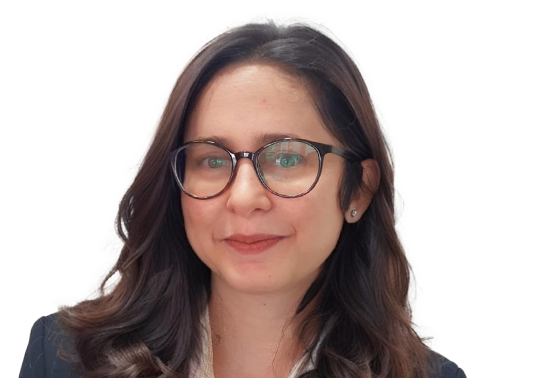CV
Bat Chen Druyan Feldman is a Neubauer Research Associate at the Russia Program. Bat Chen is PhD student at Tel Aviv University and her research focuses on Soviet and Iranian intellectual history. She has a B.A in Philosophy and Middle Eastern Studies and an M.A in Middle Eastern Studies from Ben-Gurion University.

Bat Chen Druyan Feldman
Neubauer Research Associate
batchenf@inss.org.il
Publications
All PublicationsRussia’s “New World Order” and the Israel-Hamas War
Analysis of the discourse among experts in Russia indicates how Moscow sees the war in Gaza, and sheds light on the implications for Israel
18 December, 2023Russia-Hamas Relations and the Israel-Hamas War
Researchers in the INSS Russia program argue: Now is the time for Israel to change it approach toward Moscow
9 November, 2023The War in Ukraine: Exacerbating Russia’s Demographic Crisis
Since Russia’s invasion of Ukraine in February 2022, the demographic crisis in Putin’s superpower has worsened. What reasons underlie the negative trends, what is the Kremlin doing to combat the phenomenon – and are there any viable solutions?
22 August, 2023Deepening Cooperation between Iran and Russia
Relations between Moscow and Tehran reached new heights in 2022, with Iranian drones used by Russia in Ukraine. Iran expects Russian recompense in the form of assistance with arms sales, perhaps along with cooperation in the Syrian space and the nuclear realm – and this creates a worrisome situation for Israel.
3 January, 2023Putin and Erdogan Meet in Sochi: Another Challenge to the Western Bloc
The Presidents of Russia and Turkey held a four-hour meeting recently in Sochi, along the shores of the Black Sea, and discussed a range of subjects, from trade and energy to involvement in different combat arenas. What are the two leaders’ respective interests in their dialogue – and what should Israel conclude from the deepening cooperation between Ankara and Moscow?
16 August, 2022Russia Struggles for a New World Order—Where Are Israel and the Muslim World Positioned?
The dissolution of the Soviet Union led to the collapse of the bipolar global system that was formed after World War II, resulting in Russia’s loss of superpower status that had been held by the Soviet Union. Thus, in the mid-1990s, the Russian government adopted a perception that the world order was changing and transitioning from a unipolar system led by the United States to a multipolar system characterized by multiple centers of power. According to this view, Russia holds a status similar to that of a superpower, alongside the United States, China, and other countries. Throughout Putin’s rule, the idea of transitioning to a multipolar world became established and it developed into a guiding principle of Russia’s perception of the world system, as reflected in the foreign policy concept documents of the Russian Federation. Russia’s engagement with the multipolar world order intensified even further with its invasion of Ukraine in 2022. However, a thorough examination of the official Russian discourse reveals that the concept of the multipolar world order is vague, partial, inconsistent, and has internal lacunae and contradictions. Despite these difficulties, it is possible to identify the general guidelines of this perception that steer Russia’s foreign policy toward Israel and emphasize the centrality Russia attributes to the place of the Arab world and the Muslim world in the struggle against the West, in order to establish a multipolar world order. Due to the significance of this perception in the official Russian discourse, its presentation—despite its incoherence—is critical in analyzing Moscow’s position toward Israel, comprehending its standing alongside Israel’s enemies following the October 7 attack, and outlining future Israeli policy toward Russia.
2024-04-30 All magazine articles


